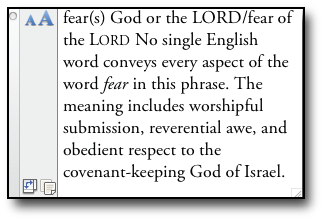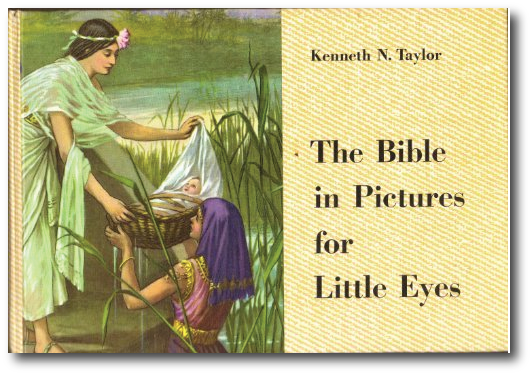My First (and Most Important) Bible Teacher
 Friday, February 3, 2012 at 11:28AM
Friday, February 3, 2012 at 11:28AM Currently, in the Sunday morning Bible study I teach, we are going through the Book of Deuteronomy. A couple of weeks ago, while discussing Deut 4, these verses became the focus of our conversation for the morning:
“Only be on your guard and diligently watch yourselves, so that you don’t forget the things your eyes have seen and so that they don’t slip from your mind as long as you live. Teach them to your children and your grandchildren. The day you stood before the LORD your God at Horeb, the LORD said to me, ‘Assemble the people before Me, and I will let them hear My words, so that they may learn to fear Me all the days they live on the earth and may instruct their children.’” (Deut 4:9–10, HCSB)
As many of you may know, the context of the Book of Deuteronomy surrounds Moses' instructions to what is essentially a new generation of Israelites before they enter the land promised to their ancestor Abraham. Moses reminds the Israelites of what has taken place before them, and he repeats the law (hence our name for the Book) to them lest they forget. To make certain that the Israelites' faith doesn't end with that generation, they are instructed to teach what they've seen and heard to their children and grandchildren.
 HCSB bullet on "fear"Probably the majority of participants in the Bible study I teach have children, and this dynamic dominated a lot of our discussion. Our church is also in the middle of bringing in a new student minister (what was called a youth minister in my day, but I guess that doesn't sound as cool anymore). Through our discussion, the parents in our group recognized that just as the Israelites didn't depend upon their religious leaders for the spiritual teaching given to their children, today's parents must also take responsibility for the faith development of their own children.
HCSB bullet on "fear"Probably the majority of participants in the Bible study I teach have children, and this dynamic dominated a lot of our discussion. Our church is also in the middle of bringing in a new student minister (what was called a youth minister in my day, but I guess that doesn't sound as cool anymore). Through our discussion, the parents in our group recognized that just as the Israelites didn't depend upon their religious leaders for the spiritual teaching given to their children, today's parents must also take responsibility for the faith development of their own children.
Church leaders are important. Moses was certainly important! However, the ultimate responsibility for a child's spiritual nurture belongs to parents (and grandparents!). Note that the instructions for this in Deuteronomy entailed not only teaching God's word to children, but also required parents to give testimony ("what you have seen and heard") of their own journey of faith. Believing parents can't hand their kids off to church leaders with the assumption that their children will grow in their faith, any more than parents can depend solely on a child's school teachers for all education. Not only does education start at home, faith begins there as well.
 No books in this picture, but in this chair Mom read to me nearly every single day when I was little.This made me think back to my own experience. Some of my very earliest memories have to do with my mother reading to me. She not only read to me, she also taught me to read before I even started school. When I was very young, I would sit in her lap, in a rocking chair that she still has to this day. From what she tells me, she began reading to me even before I could form a sentence of my own. And she did this nearly every day until I could read on my own. No wonder these are some of my earliest memories.
No books in this picture, but in this chair Mom read to me nearly every single day when I was little.This made me think back to my own experience. Some of my very earliest memories have to do with my mother reading to me. She not only read to me, she also taught me to read before I even started school. When I was very young, I would sit in her lap, in a rocking chair that she still has to this day. From what she tells me, she began reading to me even before I could form a sentence of my own. And she did this nearly every day until I could read on my own. No wonder these are some of my earliest memories.
Mom read all kinds of books to me, but I especially remember her reading Bible stories to me. We had two Bible story books. I can't remember the name of one, but the other one was Kenneth Taylor's Bible in Pictures for Little Eyes (yes, the Kenneth Taylor who paraphrased The Living Bible—he knew how to explain the Bible to people of any age).
The Bible in Pictures for Little Eyes contained short Bible stories confined to one page each, along with full-color pictures that I often "studied" for long periods of time all by myself. Each story also included a couple of discussion questions that Mom read to me, and I would then answer. We had our own regular Bible study together—just the two of us!
Sometimes I asked Mom questions. She usually knew the answers, but I got back "We're not supposed to ask that" in reply to my continual pressing for an answer to the question, "If God made everything, who made God?" Mom was a Bible teacher, not a philosopher.
 One of my two Bible story books from my childhood.Mom didn't just teach me the Bible; she taught it elsewhere, too. I can remember both of my parents, probably because they were very young themselves in those days, working with the high school students at our church (we didn't have any professional youth or student ministers back then). In the summer, when I went to Vacation Bible School, Mom was there, creatively teaching stories from the Bible to me and all my friends. She didn't just teach us the stories, she made us understand the principles learned from those stories to help us in our words and actions toward each other. Eventually, she even taught my Sunday School class, and all of this demonstrated to me a consistency in her own faith both at home and elsewhere.
One of my two Bible story books from my childhood.Mom didn't just teach me the Bible; she taught it elsewhere, too. I can remember both of my parents, probably because they were very young themselves in those days, working with the high school students at our church (we didn't have any professional youth or student ministers back then). In the summer, when I went to Vacation Bible School, Mom was there, creatively teaching stories from the Bible to me and all my friends. She didn't just teach us the stories, she made us understand the principles learned from those stories to help us in our words and actions toward each other. Eventually, she even taught my Sunday School class, and all of this demonstrated to me a consistency in her own faith both at home and elsewhere.
I've had lots of Bible teachers over the years, but undeniably, Mom was my first Bible teacher. However, I've often heard psychologists note that the first five years of our lives are possibly the most important developmentally for determining who we are and who we will become as adults. If this is true (and I believe it is), that means that Mom was not only my first Bible teacher, she was also my most important Bible teacher.
For those fortunate enough to be parents who might be reading this, don't minimize how important your role is in developing your child's faith. Even if perhaps you weren't your child's first Bible teacher, you can still be the most important. Don't leave this role to someone else; it's yours.
 Deuteronomy,
Deuteronomy,  children,
children,  family,
family,  spiritual development in
spiritual development in  Faith & Reason
Faith & Reason 
